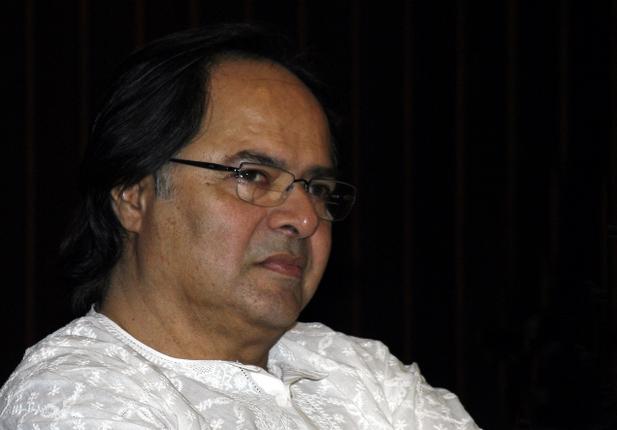
Farooq Sheikh continues to be choosy about roles and forthright with his opinions.
At a time when larger than life was the norm, Farooq Sheikh was the everyman on celluloid. With a series of films he brought out the anxieties of the middle class urban youth on the screen. A combination of choosy and laidback, of late we have seen him in shades he was not known for in his younger days. If in “Shanghai” he was grey without making it too apparent, in “Lahore” he delivered a National Award winning performance as a kickboxing coach. Even his turn as a father, telling his son the importance of family without shackling him, in “Yeh Jawaani Hai Deewani” added some meaning to the gloss. “Some new directors are showing awareness and sensibility to experiment within the contours of commercial cinema. But even in my younger days I waited to play different roles. “Noorie” was different from “Umrao Jaan” and “Umrao Jaan” was different from “Chashme Buddoor” and “Katha”,” he reminds that after “Noorie” he could have easily repeated himself.
Farooq Sheikh is missing value-based entertainment but blames the audience for it. “We have to understand that cinema is still an expensive medium. There is no point in criticising filmmakers for when you queue up to watch monkey dance you are supposed to eat and throw peanuts.” He will soon be seen in “Club 60”, debutant Sanjay Tripthay’s film on a bunch of oldies who haven’t lost their zest for life. “If you don’t suffer from any debilitating disease, age is indeed just a number. It is all about attitude. I have seen young men with stooping shoulders. The film celebrates life without sermonising.”

Cinema is said to be a young man’s medium, with little space for stories of the old but Sheikh maintains, ““Mughal-e-Azam” is as much about young Salim and Anarkali as it is about old Akbar. “Gandhi” is essentially about an old man who led a country to freedom. I always say the backbone of a film is its storyline, if it falls flat even a spritely young man can’t make it run.”
On Muslim socials presenting a distorted view about the community, Sheikh says cinema is a mass medium and touches only the surface and goes by the general perception. “You can ask why Rajinikanth always plays South Indian characters. Why doesn’t he play a Khanna or a Kapoor? What should be looked at is when the credits roll, you get to know that the Hindu boy you were watching on the screen his real name is Salman Khan and the North Indian girl you fell in love with is actually a Padukone.”
Sheikh says people make a lot about nomenclature in Hindi cinema. “To me the idea is to keep it simple so that people could easily remember the name. I haven’t seen a single character named Shatrughan in a Hindi film despite the fact that we have a popular actor of this name.”
Ploughing the middle ground
As we enter into an election year, the choice is fast getting reduced between the communal and the corrupt. Sheikh, who is never shy of sharing his point of view on social and political issues, says corruption can be handled through a robust democratic process but what will you do of people who are eager to create social disorder leading us to a state of chaos. Sheikh is considered as a moderate voice among Muslims but the seasoned actor is not too enthused by this description. “The government either listens to those who threaten to go on fast unto death or those who pick up the gun. Where is the space for the moderate voices,” he asks.
While the government has paid little heed to the findings of the Sachar Committee, he says, the community also needs to look within. “Does a Farooq Sheikh need to buy a car or can he remain happy with his two-wheeler and donate some money for the betterment of the community. Do you procreate to have an educated and well informed citizen or do you just want another hand to help in the business. Do you want to become an asset to the society or do you want to become a huge weight around its neck. If you fall down one way is to pick yourself up, dust yourself off and move on. Another way is to keep lying and crying. These are some of the questions that the community has to address,” says Sheikh adding the community has yet to see a leader of the calibre of Maulana Azad.
Some of the clerics have shown their conditional support to a particular leader. “There is nothing like a cleric in Islam,” Sheikh counters. “They are useful only for the people who can’t read and understand Koran. And those who understand can make up their own mind.” On Lata Mangeshkar being hounded for supporting Narendra Modi, Sheikh says she has every right to air her opinion. “If somebody feels that an election can be win or lost according to the opinion of a film personality he is mistaken. In that case a political party just has to rope in one of the Khans,” says Sheikh denying he holds any political ambitions.
source: http://www.thehindu.com / The Hindu / Home> Features> Friday Review / by Anuj Kumar / November 28th, 2013 ( in Print November 29th, 2013).








